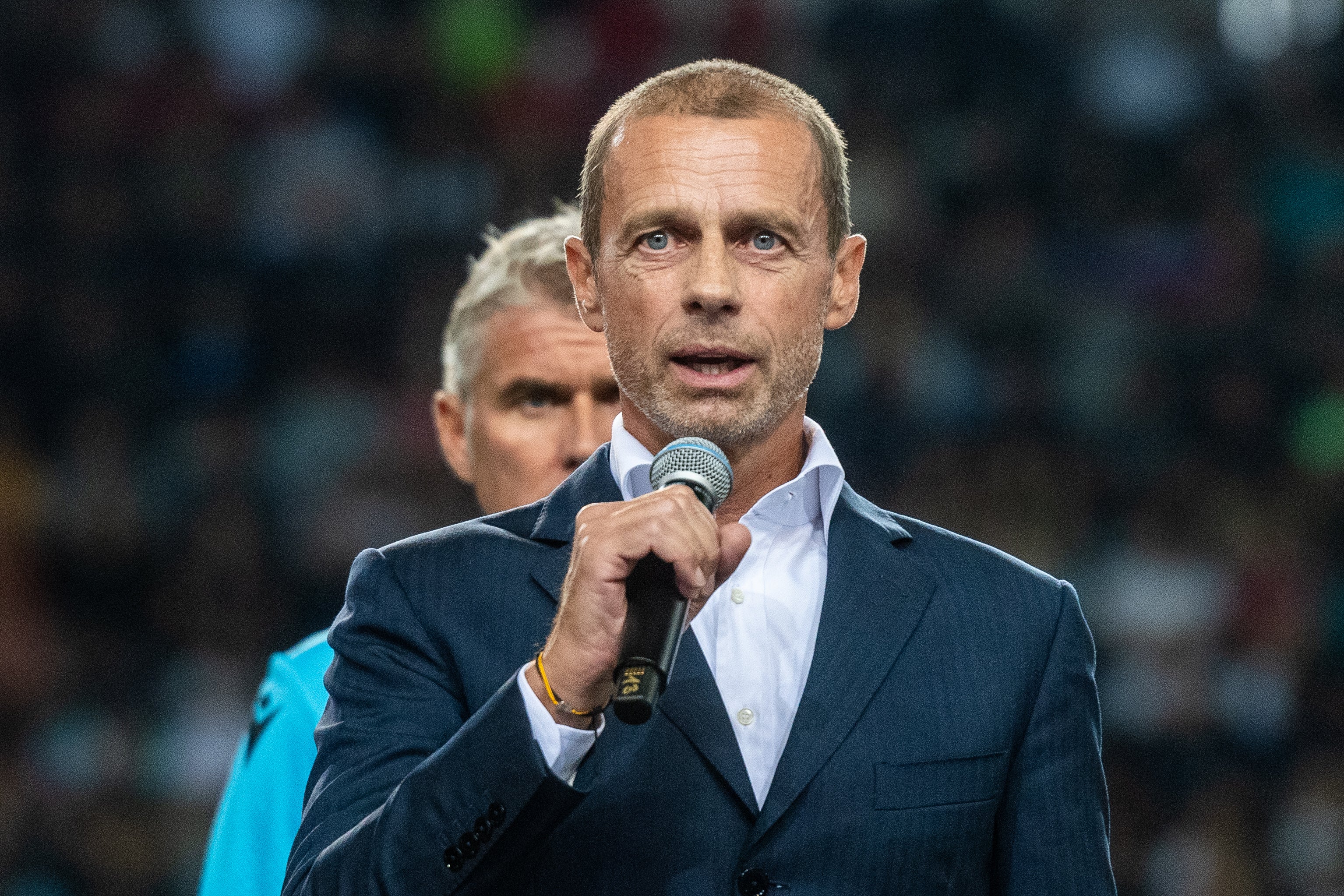Uefa growing confident ahead of key vote on Aleksander Ceferin presidency
The proposed amendments have led to the resignation of Uefa’s chief of football as well as talk of a civil war

The Uefa hierarchy are confident of passing controversial amendments to its federation statutes next Thursday, in a move that could yet see incumbent president Aleksander Ceferin stay on until 2031.
The vote at the Uefa Congress in Paris next week is also set to indicate the early battlelines at the start of a growing civil war in European football.
The split has already seen Croatian legend Zvonimar Boban resign as chief of football on principle, and confederation insiders are now watchful of who exactly votes against the proposals.
Although the amendments propose to set a limit for members of the Executive Committee at three terms, there is a specific reference to those beginning in 2017, which would mean Ceferin could stand again in 2027.
This has added to growing unease among Uefa staff, but also a number of member associations. While Boban's resignation has been seen as the start of a wider heave against the president, there is some trepidation when it comes to the vote.
Ceferin gave two interviews last week to UK newspapers, which both addressed the amendments. "Congress and not an individual holds the authority to determine the appropriateness of any changes," the Uefa president told The Guardian.
That essentially means member association chiefs openly holding their voting card in the air on an agenda item. As a series of insiders have put it, "that will be taken note of", and has created an air of caution among potential rebels.
A long-term issue with the executive presidential structures in both Uefa and Fifa is how beholden the power structure is to the president, who can make appointments and affect career pathways. There are very few checks or balances. It is partly why presidents stay for the maximum amount of terms, since it is so easy to sideline anyone with different views or ideas to the president. Congress is seen as rubber-stamping.
The Independent has been told that there are only a handful of member associations now openly supportive of the proposed amendments, but most are either complicated or subdued by caution. As one source put it: "When was the last time there was any dissent at a Uefa Congress?"
That is nevertheless why there may be considerable intrigue to next Thursday in Paris even if the vote passes. If the amendments win by over 45, Ceferin looks strong. If the rebels can even get to 10, it would look damaging and foster the sense he is losing control. It is only 12 months, after all, since Ceferin was elected unopposed. That is why any dissent here could be crucial for the future, even if the current Uefa hierarchy win this battle.
Some football figures and even European Union officials have expressed shock at the proposed amendments in the wake of December’s European Court of Justice decision over the European Super League, arguing this is not an example of the type of good governance that the ruling called for. A feeling was that it also gives the Super League rebels – represented by A22 – an “open goal” in terms of justifying their project and generating momentum.
While that December decision made it very likely for this version of the Super League to get through, there were a number of stark paragraphs about how the nature of football governance needs to be improved.
Subscribe to Independent Premium to bookmark this article
Want to bookmark your favourite articles and stories to read or reference later? Start your Independent Premium subscription today.

Join our commenting forum
Join thought-provoking conversations, follow other Independent readers and see their replies